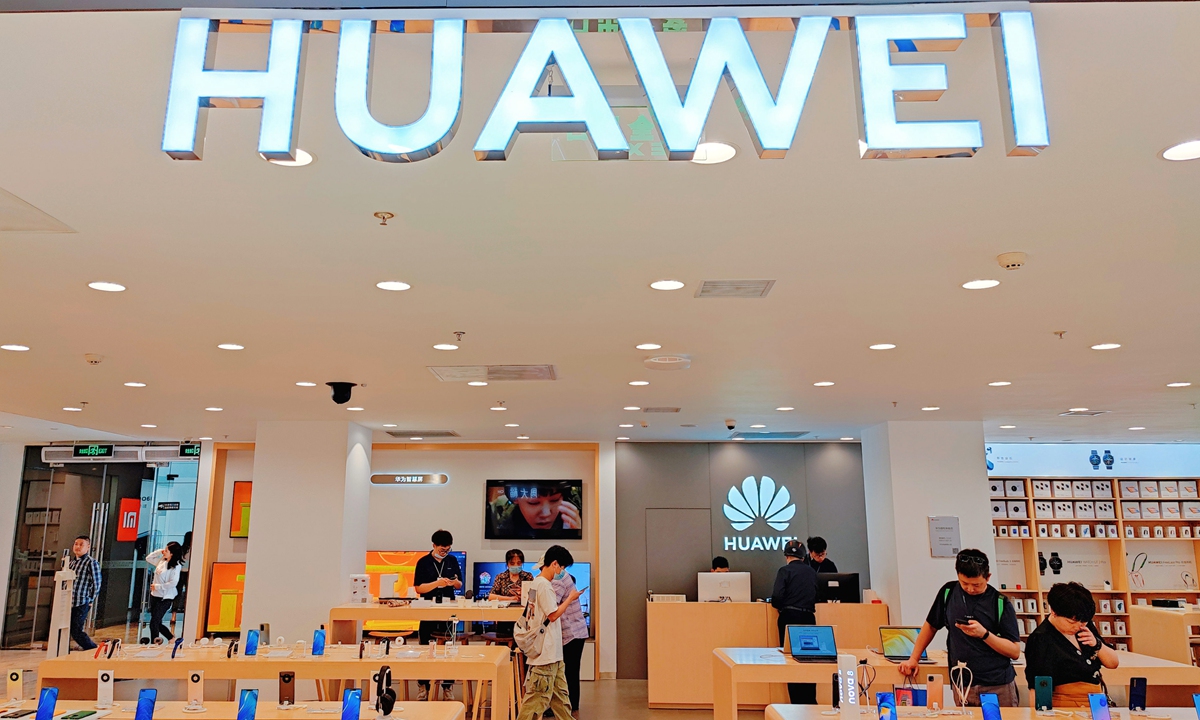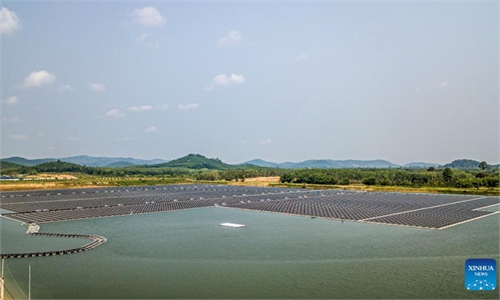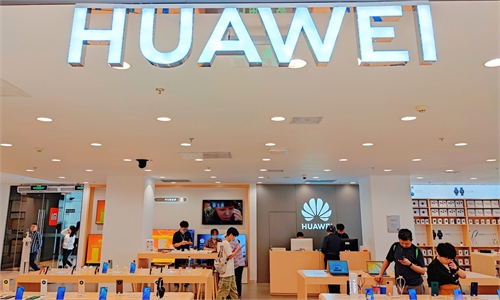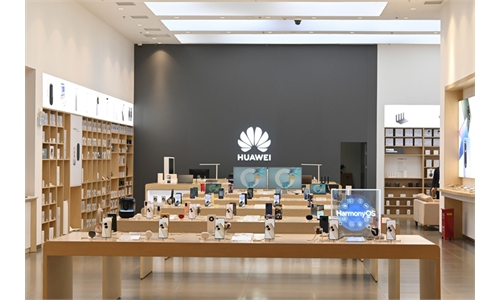
Huawei Photo: VCG
Huawei has pledged to survive sustainably with an expanded business portfolio and increased input in technology innovations despite mounting headwinds this year.
Rotating Chairman Ken Hu said at its Global Analyst Summit on Tuesday that a major goal of Huawei this year is to survive sustainably despite mounting external challenges such as the pandemic, global inflation and geopolitical upheavals.
Due to a lack of chips caused by the US ban, Huawei's smartphone business has declined sharply over the past two years, a real regret - not just for Huawei, but for the broad consumers, Hu said.
"At the same time, however, it also gave us the opportunity to rethink our device business and how we can provide consumers with greater value," Hu said.
The sanctions imposed by the US government have brought Huawei a lot of trouble, with "striving for survival" being the company's distinctive voice in recent years.
However, it did not stop Huawei from moving forward as the difficulties stimulated its determination to invest in the future, Jiang Junmu, a Shanghai-based veteran industry expert and close follower of Huawei, told the Global Times on Tuesday.
In an effort to find more sources of income and shake off the effects of the US ban, Huawei has kept expanding its business domains and innovation efforts.
Under the US ban, which shut Huawei out from having access to advanced chips and other components, the company has been shifting focus to systems engineering and driving breakthroughs.
At the meeting, Huawei announced its vision to increase bandwidth, bringing a 10 gigabit/second experience everywhere; break through existing bottlenecks in computing performance, and develop more intelligent devices other than cellphones.
Seeking the opportunity of digital development and low-carbon development, Huawei will continue to help the industries in all walks of life to solve the most difficult problems in the process of digital transformation, and empower low-carbon development of industries with its technology, Hu said.
For example, Huawei has helped over 200 coal mines install more than 3,000 pieces of 5G equipment.
With cloud and artificial intelligence technology, it helped a solar power station to increase the energy yield by more than 2 percent and enhanced efficiency by 50 percent, Hu said.
"Huawei's investment in digitization and low carbon, as well as its persistence and planning for continuous innovation, have set an example for other large and small enterprises. This also served as its confidence and magic weapon to deal with the adverse situation," Jiang said.
Last year, Huawei's revenue from its consumer business, which used to be the firm's main source of income, fell 49.6 percent year-on-year to 243.4 billion yuan ($37.19 billion).
Revenues of the company declined by a steep 28.6 percent last year, largely due to a drop in its smartphone business, as US sanctions continued to bite.
"We believe that in 2022, we are facing more daunting challenges, given the external environment. Surviving and surviving sustainably is a very important goal to us," Hu said, noting that daunting challenges caused by ongoing geopolitical conflicts, the pandemic and the rising price of commodities have weighed on many companies, including Huawei.
To achieve its goals, Huawei will continue to deliver high quality products to customers, ensure sound business operations and keep investing in technology innovations, Hu said.
Despite considerable operational challenges over the past few years, Huawei has continued to increase its investment in research and development (R&D) with the re-investment of at least 10 percent of its annual revenue back into R&D. Last year, the figure shot up to 22 percent.
On Monday, Huawei posted a recruitment notice, seeking to hire talented young people from around the world in 2022. The company recruited more than 26,000 fresh graduates in 2021 and 2020, more than 300 of whom were gifted youngsters.



